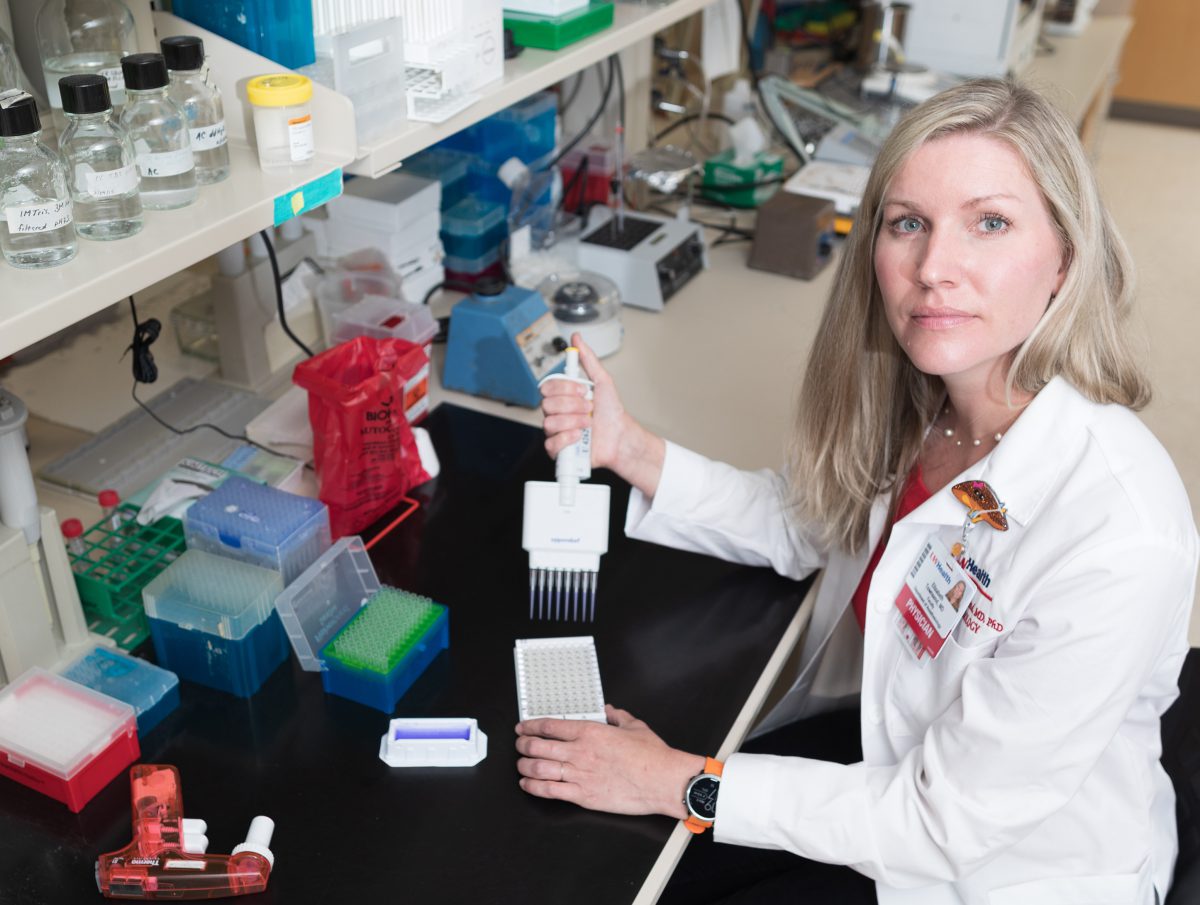
Dr. Elizabeth Townsend, MD, PhD, a Fellow at UW-Madison Department of Anesthesiology was awarded the FAER Mentored Research Training Grant. The Foundation for Anesthesia Education and Research grant is dedicated to helping anesthesiologists develop the skills, preliminary data for subsequent grant applications, and research publications needed to become independent investigators. Dr. Townsend’s research project, “The Role of Alveolar macrophage-derived Eicosanoids in the Regulation of Airway Inflammation,” will be funded with a $250,000 grant over two years.
Dr. Townsend worked closely with her University of Wisconsin – School of Medicine and Public Health mentors, Loren C. Denlinger, MD, PhD, Department of Medicine, Division of Allergy, Pulmonary, and Critical Care and Thomas McDowell, MD, PhD, Department of Anesthesiology, Interim Vice Chair of Research, Chair of R&D Committee.
“New targets for alleviating airway inflammation are crucial in the management of this disease”
Dr. Elizabeth TOWNSEND
“Asthma prevalence is increasing yearly, with a paucity of innovative therapies to address airway inflammation,” Dr. Townsend says of the significance of her investigation. “Corticosteroids are the current treatment of choice for airway inflammation, however, some asthmatics are resistant to them.” she explains. “New targets for alleviating airway inflammation are crucial in the management of this disease,” she continues. “Immune cells including airway macrophages regulate airway inflammation following viral infection, a major asthma trigger. Macrophages also aid in the clearance of airway inflammation by generating eicosanoids and other pro-resolving molecules.”
She hypothesizes “that viral infection stimulates the production of pro-inflammatory and pro-resolving eicosanoids via the purinergic, P2X7, receptor signaling pathway in alveolar macrophages and that an imbalance favoring pro-inflammatory eicosanoid production contributes to airway inflammation and remodeling in individuals with asthma. Further characterization of signaling pathways involved in airway inflammation may result in new therapeutic targets for the treatment of asthma, especially in patients who are unresponsive to corticosteroids.”